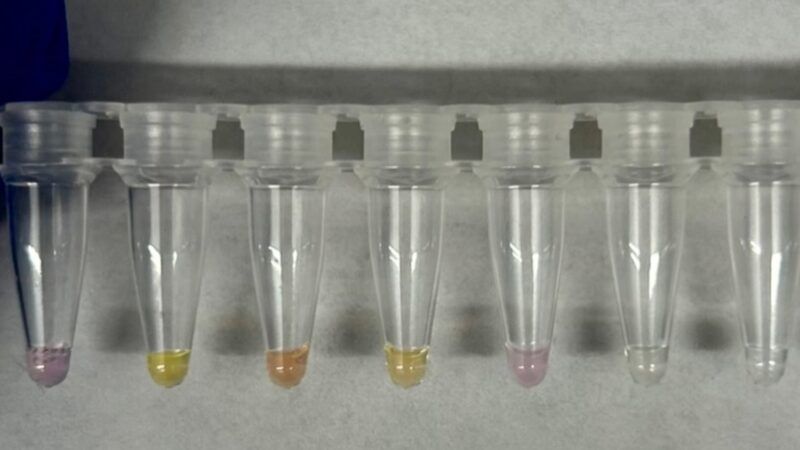DIY Genome Editing at Only $2 a Pop
Avoiding regulation, DIYBio becomes cheaper and more available.

CRISPRkit aims to make "gene editing accessible for everyone, everywhere." Aimed at K-12 students and people of any age curious about the how the revolutionary CRISPR gene-editing works, the DIY kits cost just $2 a piece (about $40 for a classroom). "Our mission is to democratize the tool that enables us to rewrite the code of life," declares the founders at the CRISPRkit website.
The advent of CRISPRkit is a measure of just how we have come in just eight years when Stanford University infectious disease expert Dr. David Relman warned, "I do not think that we want an unregulated, non-overseen community of freelance practitioners of this technology." Relman and others were concerned about the rising DIYBio movement, as exemplified by direct-to-consumer CRISPR editing packages such as those offered by The ODIN company (founded by biohacker Jo Zayner). Back in 2018, I used an ODIN kit to gene-edit some bacteria in my kitchen.
CRISPR is a tool that enables researchers—and now elementary school students—to edit DNA, much like cutting and pasting text in a document. They can remove, add, or change parts of the genetic code to study it, create new traits or fix deleterious mutations.
Largely the brainchild of a team of Stanford graduate and undergraduate students, a CRISPRkit contains vials of small circular DNA molecules called plasmids incorporating genes that generate proteins that turn red, yellow, or orange. In the experiment, students add CRISPR molecules that are designed to turn off the production of the colorful proteins. Whether or not the experiment is successful can be checked with a smartphone app.

"We wanted to make it as accessible as possible, so kids from all different socioeconomic backgrounds could get exposure to exciting technologies that are making waves in bioengineering and medicine – and hands-on experiments give them experience in what science is all about," said Marvin Collins one the developers of the CRISPRkit in a press release.
Those seeking a more ambitious introduction to the workings of CRISPR, The ODIN now offers numerous gene-editing kits, including ones for editing plants, bacteria, and yeast. And the bio-curious can also take advantage of the many citizen-science bio-labs to learn about and deploy bioengineering techniques.
Relman's concerns hark back to the dawn of the biotech revolution in the 1970s. Then researchers called for a moratorium on nascent bioengineering and later endorsed regulations that significantly slowed progress without enhancing safety. The good news is that CRISPRkit and other DIY bioengineering efforts are available because the research community avoided that mistake this time.
Editor's Note: As of February 29, 2024, commenting privileges on reason.com posts are limited to Reason Plus subscribers. Past commenters are grandfathered in for a temporary period. Subscribe here to preserve your ability to comment. Your Reason Plus subscription also gives you an ad-free version of reason.com, along with full access to the digital edition and archives of Reason magazine. We request that comments be civil and on-topic. We do not moderate or assume any responsibility for comments, which are owned by the readers who post them. Comments do not represent the views of reason.com or Reason Foundation. We reserve the right to delete any comment and ban commenters for any reason at any time. Comments may only be edited within 5 minutes of posting. Report abuses.
Please to post comments


Modern chemistry kits are quite boring, so this at least seems like fun.
MORE TESTING NEEDED!
This and 3D printing probably make more bureaucrats pee their pants than anything else. Throw in cheap widespread mesh networking and software radios, and governments are going to have a wild ride.
One of the most enduring conceits of human society is that authority can prevent bad people from doing bad things. They pretend - or falsely believe - that passing a law against something or empowering a regulator to supervise something is all it takes to prevent it, or at least to reduce the danger from it. While some people might be intimidated by a law or regulation, there is no evidence I am aware of that supports the impulse to ban dangerous human activities or knowledge.
Remember when Bailey ran away from commenters calling him out on his global warming bs? The Rev remembers.
Hey baily apologize for being a fucking lier.
" Dr. David Relman warned, "I do not think that we want an unregulated, non-overseen community of freelance practitioners of this technology."
Self-proclaimed "Experts" hardest hit.